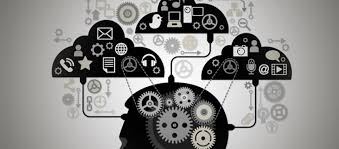You see it everywhere, Ad's for new electronic "fix” touting the capability of using technology to accomplish several things at once. The "skill" of multitasking is a highly sought after attribute that can be found in many job postings and is widely used in the strengths sections of résumés. People pride themselves on being high-performing team players wearing the "I Am a Multitasker" badge loud and proud.
Guess what? It's BS. The human brain is not built to work this way. Recent revelations in brain research tell us that the brain doesn’t (and can't) really do multiple tasks simultaneously, as we once thought. Actually, all we are doing when we claim to multitask is just very quickly bouncing between tasks. Any time we move from answering the phone to texting, emailing or talking to someone, there is a stop/start process that goes on in the brain.
That start-stop-start process is rough on us. Rather than saving time, it costs time (even very small micro seconds), it’s less efficient, we make more mistakes, and over time it can be energy sapping and lead to massive amounts of stress, burnout or depression. In the business world, where concerns about time-management are all the rage, warnings about workplace distractions borne from a multitasking culture are on the rise. Newer research is concluding that workers are taking an average of twenty-five minutes daily to recover from these numerous stop-start intervals, wow!
Our human brains were really built to focus. When we try to force ourselves to multitask, we are trying to get our brains to perform a task it cannot do for and we are becoming less efficient in the long run- even though it may feel like we’re “multitasking masters” the moment.
So what do we do? How do we break our addiction to this mythical activity in which people believe they can perform two or more tasks simultaneously? Like all addictions, it begins with an awareness. This awareness however starts from within. It begins very simply by replacing your multitasking mindset with a different “M” word; Mindfulness. Simply, for the purpose of this article, focusing your awareness on the present moment and on the task at hand. By incorporating mindfulness and paying attention moment by moment to where we are and what we’re doing, and focusing on one task at a time, mindfulness will help you think more clearly, be more efficient and less prone to stress or burnout.
Another idea would be for companies to stop using “Must Be Able to Multitask” in job listings and focus on qualities and skills that ARE humanly possible and can increase productivity like drive, motivation, ambition, passion, hustle… you get the idea- and watch your efficiencies rise while stress levels and employee burnout decline. On the flip side if “Multitasker” is in your resume strengths section, get rid of it or replace it with “magical superpowers” because at least those might exist. When we all learn to embrace Mindfulness with the same vigor as we have for years with Multitasking, I would be excited to see where this journey will take us all personally, professionally, and as a global community.


 RSS Feed
RSS Feed